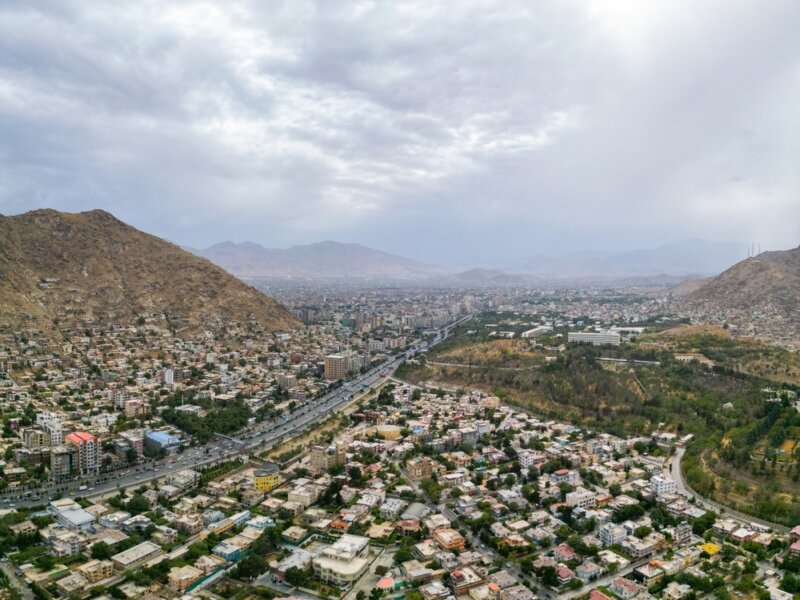Chi salverà il Pakistan?
In Pakistan, nonostante l’emergenza alluvione e il perdurante dissesto finanziario, non si arrestano le ostilità tra le fazioni politiche. L’analisi di Guido Bolaffi

Chi salverà il Pakistan? Domanda non solo legittima ma sacrosanta, visto che neppure le migliaia di morti e i danni inflitti alla sua economia dalla catastrofica inondazione delle ultime settimane sembrano aver convinto le rissose fazioni della classe politica pakistana a concordare almeno una tregua alla loro “guerra”, esplosa da ultimo in tutta la sua tragica pericolosità con il mandato di arresto emesso lo scorso 22 agosto dalle autorità di polizia nei confronti dell’ex Primo Ministro, e capo del maggiore partito di opposizione, Imran Khan. Colpevole, secondo gli addetti alla Sicurezza Nazionale, di terrorismo ed incitamento alla sedizione perché nel corso di una manifestazione di protesta per la detenzione di un suo stretto collaboratore aveva affermato, chiamando in causa il Capo della polizia ed il magistrato inquirente “You should get ready as we will take action against you”.
Un’accusa grave, ma infondata. Infatti, spiegava su Foreign Policy nell’articolo Imran Khan’s Revolution il docente dello Strategic Studies Institute at the U.S. Army War College di Washington Azeem Ibrahim: “To some the Khan’s statement was of legal intent, the bread and butter of politics. But to Pakistan authorities such comments border on treason”.
Una situazione che, con un eufemismo, potremmo definire “al limite del corto circuito”, e rispetto alla quale vale leggere quanto scriveva Abbas Nasir, ex direttore di Dawn, nel commento pubblicato lo scorso 28 agosto con il significativo titolo A little empathy, please: “Pakistan has witnessed many periods of polarisation within society, especially during long spells of military rule and its aftermath, but the current divide seems so pronounced and bitter that even a natural calamity can’t bring the leaders onto the same page […] All politicians and political parties have the right to aspire to office; coming into government is the only route for them to be able to implement their manifesto or agenda for the good of the people and country, at least in theory, and win the confidence of the electorate […] But surely are circumstances when political rivalries and jostling for power should take a backseat as the immediate well-being of a huge mass of our people is threatened; when no government or political party or organisation can meet the challenges all on its own”.
Che in Pakistan la politica abbisogni, come si dice in gergo, di una “calmata” sembrerebbe essere una necessità imposta non solo dall’emergenza alluvione, ma anche dallo stato pericolosamente critico dell’economia. Tema, questo, che Reza Bagir, già governatore della Banca Centrale del Pakistan, aveva posto lo scorso 31 luglio al centro dell’articolo Is this crisis like none other? : “The perception that this crisis is like none other is the current political tension and its associated implications for uncertainty around future economic policymaking […] Today, the perceived absence of political clarity is casting a shadow over most economic decisions. Further, each new political development opens up more permutations around the future course of decision-making”.
Un problema non serio ma serissimo, perché, spiegava Mahua Venkatesh nell’articolo Will Sharif govt be able to carry out economic reforms after by-poll setback?, “Pakistan’s political uncertainty could lead to delay in the release of the International Monetary Fund’s bailout package, which Islamabad urgently needs. The political turmoil will further dent economic recovery and Pakistan could soon go the way of Sri Lanka. The results of the Punjab by-elections, where the party Pakistan Tehreek e Insaaf (PTI) of the former Prime Minister Imran Khan won 15 of the 20 seats, are clear. The popularity of the Shehbaz Sharif government is waning amid soaring inflation and unemployment. And now there is growing concern among the ruling coalition that there could be a change in the government once elections are held”.
Tanto è vero che un insigne analista pakistano intervistato dalla giornalista di Indian Narrative, sotto la garanzia del più stretto anonimato, ha sconsolatamente affermato che “The writing is clear on the wall […] Imran Khan continues to enjoy massive support. This will naturally impact the ruling coalition’s efforts to bring reforms, especially as general elections are approaching, now or next year […] Islamabad has raised taxes and fuel prices in a bid to secure the IMF loan. The move, however, has angered the common citizens who are directly facing the brunt of the high inflation”.



